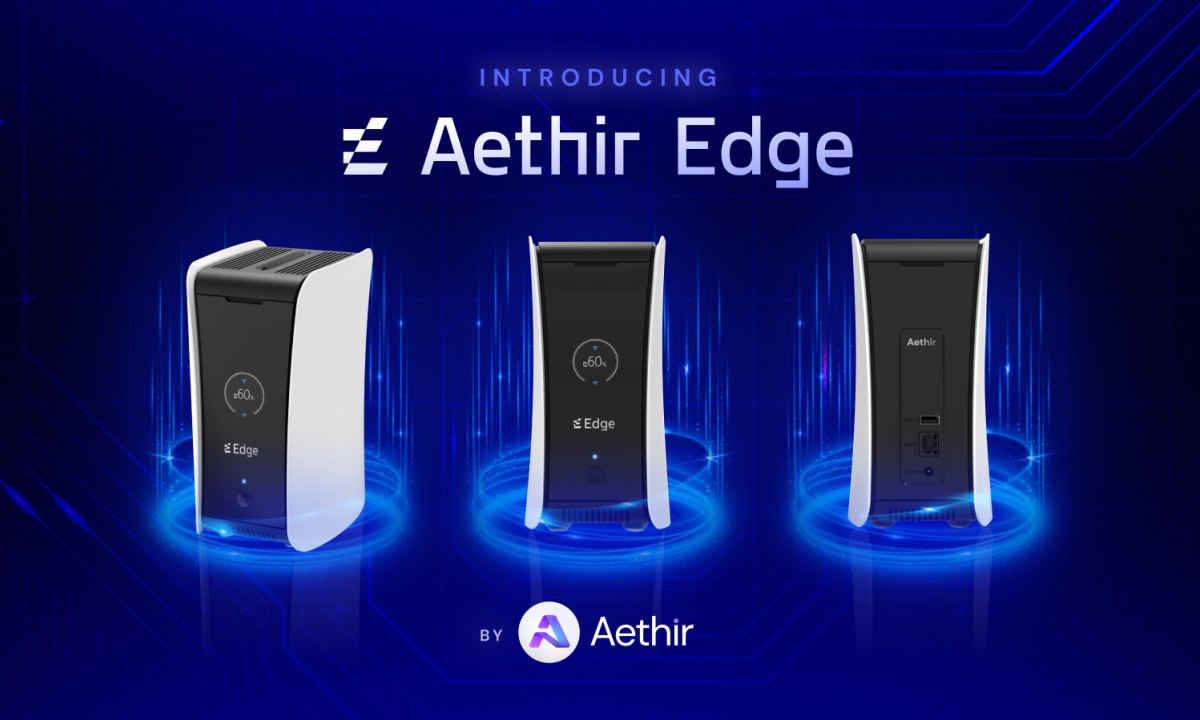Proof-of-Work Vs. Proof-of-Stake: The Obvious Difference Between 2 Mechanisms
Among consensus mechanisms, Proof-of-Work (PoW) and Proof-of-Stake (PoS) are most frequently used. Major cryptocurrencies use them to secure their network. So what is the difference between these two mechanisms, let’s learn about this topic with Coincu.
What Is Proof-of-Work?
Proof-of-Work offers a neutral means for all Bitcoin network participants to concur on the current state of the blockchain and all Bitcoin transactions.
Since Proof-of-Work requires miners to make trillions of guesses at numbers in order to produce a valid block, difficulty adjustment allows miners to find a block on average every 10 minutes.
Bitcoin uses Proof-of-Work to certify transactions and protect the network. PoW, among other things, avoids double-spending. Participants who participate in the blockchain are referred to as miners, and they use computing power to compete for the opportunity to confirm new blocks and update the network. A profitable miner will be compensated by the network in BTC. By successfully mining a Bitcoin block as of December 2021, a miner will receive a block reward of 6.25 BTC plus transaction fees.
PoW may be a protocol created to create secure digital transactions without needing to trust a third party. This project expands on earlier puzzle answers. PoW might be used to confirm both recent and old transactions. It’s a process known as mining, where the effort put into a problem results in incentives for the person who solves it. To put it another way, this is frequently an algorithm created to validate transactions and add new blocks to the blockchain.
Features of Proof-of-Work
Because the SHA-256 hash function, which is the foundation of the Proof-of-Work process, has strong randomness, Proof-of-Work is random and fair. There are no intricate governance mechanisms in place to control who finds blocks or sets the rules. To ensure that all miners are honest, Bitcoin totally depends on cryptography, a branch of mathematics, as well as economic theory and game theory.
Additionally, PoW encourages miner operations to decentralize both organizationally and geographically, which decentralizes Bitcoin as a whole. This is because the biggest expense for miners is a variable expense: power. Mining operations are spread out globally because of the cheap energy that is available since miners are continually looking for ways to reduce energy prices.
Because of the difficulty adjustment, when the price of Bitcoin grows, more miners begin to mine, increasing the difficulty and enhancing the security of Bitcoin. As a result, Bitcoin’s security improves, deterring any attempts to attack the network, even as it becomes a more desirable target for attackers and a more potent force for central banks.
Disadvantages of Proof-of-Work
Proof-of-Work has a number of fees and downsides. Additionally, it has some characteristics that, despite their outward appearance as flaws, serve to strengthen the network and its incentive structure.
Energy
A Proof-of-Work network’s high energy expenditures led to the development of Proof-of-Stake. The energy consumption of Bitcoin has frequently been mentioned as a drawback, and proponents of rival cryptocurrencies have asserted that their tokens will eventually replace Bitcoin as a result.
Both parties undervalue or ignore the importance of Bitcoin’s highest level of security. The security and immutability of the Bitcoin blockchain are unmatched by any other cryptocurrency, fiat currency, or even commodity-based money. Security and dependability are frequently more crucial for high-value transactions than speed. The high demand for transactions on the Bitcoin blockchain thus shows that the expense of energy usage is well worth it. Because Proof-of-Work transforms energy into security, no cryptocurrency that has sought to imitate Bitcoin and do away with its energy requirements has established sufficient security and decentralization.
Hardware requirements
Complete the Proof-of-Work computers and extensive calculations are required for the work. Instead of using standard laptops and general-purpose computers, miners employ customized hardware to maximize the energy efficiency of this process. These customized machines are known as ASICs, and their only function is Bitcoin mining.
Because attackers are deterred by this hardware’s single purpose, Bitcoin is protected. ASICs costing millions or even billions of dollars would be required if an attacker intended to launch a 51% attack on the network, only to have those ASICs rendered useless by the collapse of the Bitcoin network.
What Is Proof-of-Stake?
A few alternative cryptocurrencies have evolved and are now using Proof-of-Stake, a consensus method that is an alternative to Proof-of-Work. Stakers lock up money in a unique smart contract. An algorithm gives a particular staker a chance to publish the following block whenever the network requires a new block. Depending on the percentage of the total amounts staked by each staker, the algorithm chooses the staker by lottery. For instance, a single staker has a 30% probability of mining the following block if they hold 30% of the funds staked on a certain network.
Proof-of-Stake was created to address the alleged drawbacks of Proof-of-Work. First off, because money is merely stored in a particular smart contract on the blockchain, Proof-of-Stake does not necessitate the enormous energy usage that Proof-of-Work entails. Because of this, some who bemoan Bitcoin’s energy usage favor Proof-of-Stake.
Supporters of Proof-of-Stake also assert that PoS is more economically secure than PoW, however, this claim has been disputed endlessly. Additionally, since there aren’t many decentralized PoS systems and Bitcoin hasn’t ever been hacked, assertions that PoS is more secure than PoW have remained simply theoretical without any supporting data.
Disadvantages of Proof-of-Stake
The disadvantages of Proof-of-Work, such as the hardware requirement and the energy consumption, are intended to be eliminated by Proof-of-Stake. However, Proof-of-Stake also forfeits the advantages of Proof-of-Work by giving up these qualities.
Governance Problems
Owners of the token are given control over the network in Proof-of-Stake systems. The network’s regulations can be changed by those who possess substantial amounts of the token. By merely staking, they can also amass more of the token. This positive feedback loop may cause exchanges and other major institutions that handle user assets to become the only custodians of staked funds.
For Proof-of-Work systems, this is not the case. The ruleset of Bitcoin is managed by nodes and miners; bitcoin owners have no authority over the network.
Security issue
Because only capital, which is far more centralized than labor and inexpensive energy, controls the network, Proof-of-Stake systems are susceptible to centralization and capture. Any party with the ability to invest $10 billion can gain control of a $100 billion PoS network where 10% of tokens are staked. Simply sending $10 billion in tokens to a staking contract would be enough for the attacker to succeed.
To carry out an attack on a Proof-of-Work network, you need money, labor, and efficient allocation of both. Purchasing ASICs, getting space and energy contracts to mine at a greater scale than the entire network, and acquiring and deploying the workforce to carry out the attack are all necessary for attacking a network with $10 billion worth of the security. The massive demand for ASICs and electricity would most certainly alert the entire network in advance if such an attack were in progress.
Conclusion
There is a place for both Proof-of-Work and Proof-of-Stake in the cryptocurrency ecosystem, and it is difficult to declare with absolute certainty which consensus process performs better. Although PoW has come under fire for its excessive carbon emissions during mining, it has shown to be a reliable method for safeguarding blockchain networks. However, as Ethereum moves from PoW to PoS, the Proof of Stake technology may come to be more popular among new projects.
DISCLAIMER: The Information on this website is provided as general market commentary and does not constitute investment advice. We encourage you to do your own research before investing.
Join us to keep track of news: https://linktr.ee/coincu
Website: coincu.com
Harold
Coincu News

























